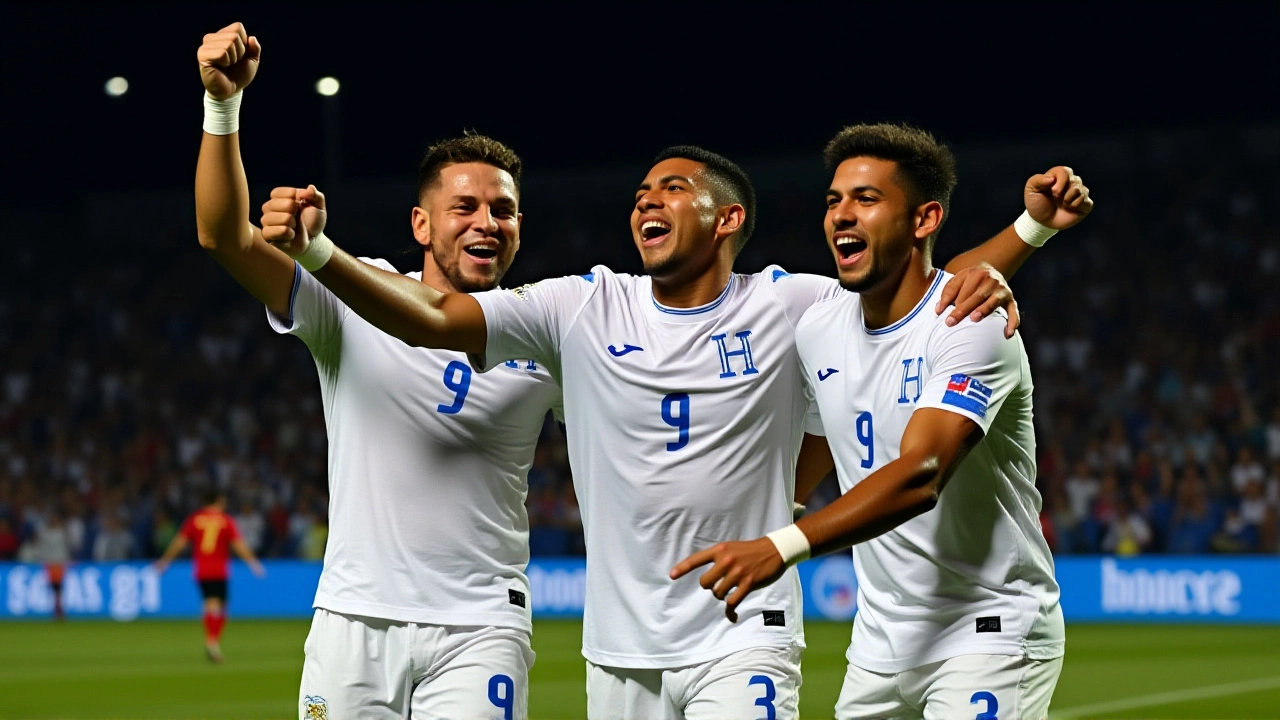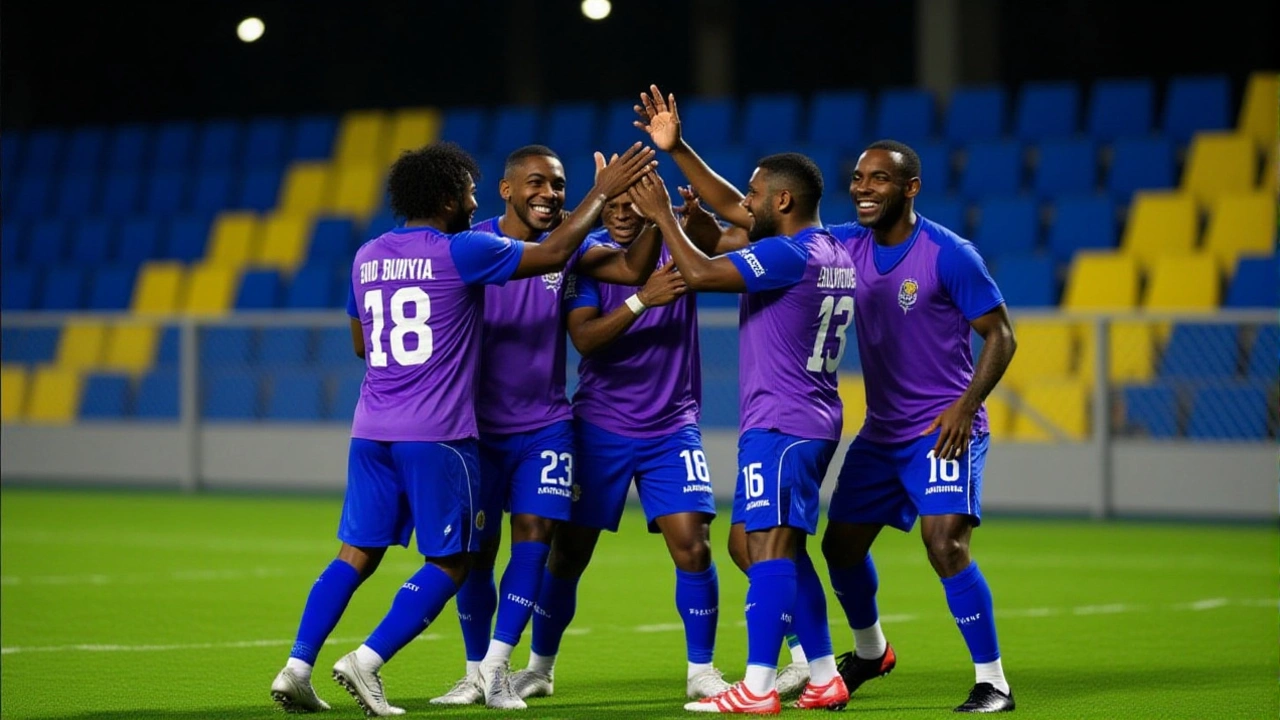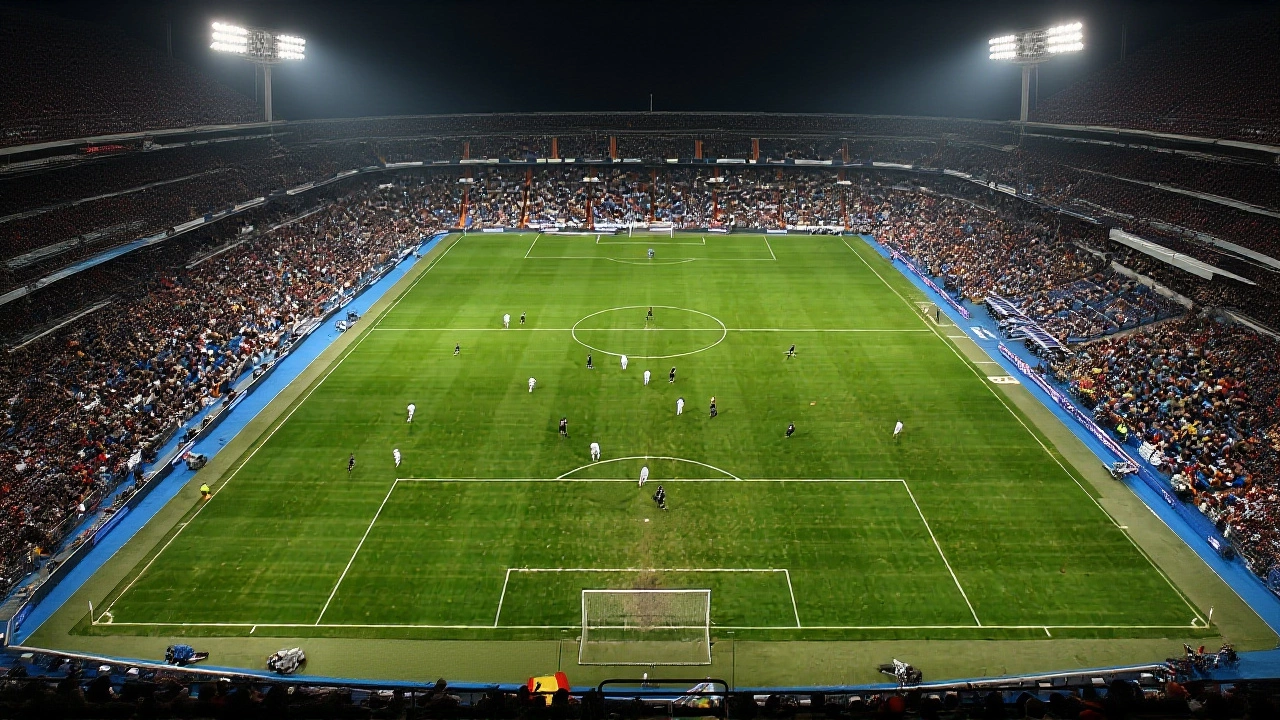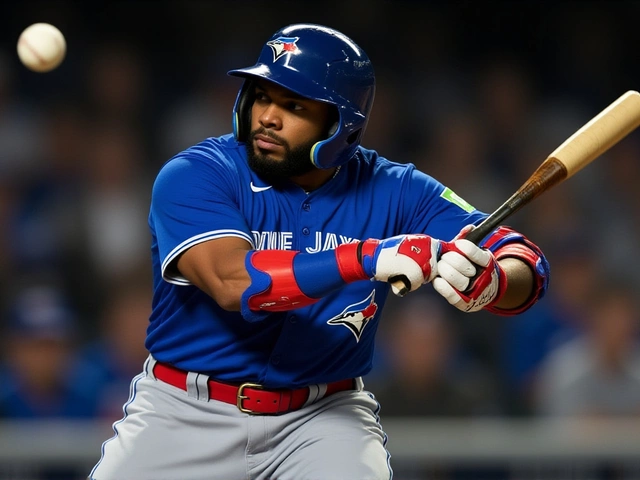The Costa Rica national football team and the Honduras national football team played out a tense, goalless draw on Matchday 6 of the 2026 FIFA World Cup Qualifying - CONCACAF Third RoundEstadio Nacional de Costa Rica in San José, ending 0-0 after 90 minutes plus 10 minutes of added time. It was a result that felt like a missed opportunity for both sides — Honduras, the group leaders, failed to extend their advantage, while Costa Rica, clinging to hope, couldn’t claw back into contention. The final whistle brought silence to the stands, not of celebration, but of exhaustion — and dread.
What Was at Stake?
Entering the match, Honduras sat second in Group C with 9 points (2-3-1), just two ahead of Costa Rica (1-4-1, 7 points). Haiti, meanwhile, had surged to the top with 11 points after their 2-0 win over Nicaragua on the same day — a result that echoed through every broadcast booth. For Honduras, a win would have all but sealed their path to the 2026 FIFA World CupCanada, Mexico, and the United States. For Costa Rica, it was a must-win. A draw? That was a step backward.
The over/under betting line had been set at 2.5 goals. The under won. And not by accident. Both teams played with caution, fear, and the weight of history. This wasn’t just about points — it was about legacy. Costa Rica, once a regional powerhouse, has spent years slipping from relevance. Honduras, perennially on the edge, has become masters of the grind. Neither wanted to lose. So neither dared to win.
The Key Moments — And the Ones That Didn’t Happen
There were chances. At 4:12 into the highlights, Joel Campbell unleashed a curling shot that crashed off the wall, forcing a corner. At 39 minutes, Honduras nearly broke through — a cross from the left, a header from the center — but Kaylor Navas, Costa Rica’s goalkeeper, stretched full length to palm it away. That save wasn’t just athletic. It was psychological. It told Honduras: you’re not getting this one.
Costa Rica dominated possession in the first 20 minutes, but their passing lacked urgency. They moved the ball, but never truly threatened. Honduras, by contrast, sat deep, absorbed pressure, and looked to counter. At 75 minutes, a long ball found the space behind Costa Rica’s defense — but the finish was weak. At 85, a free kick from the edge of the box sailed just wide. Every moment felt like a missed chance, not because of poor skill, but because of sheer nervousness.
Then came the controversy. At the 1:46 mark of the extended highlights, Costa Rican players erupted — Luis Vega had been called for a foot foul on a challenge that looked more like a collision. Replays showed little contact. But the referee’s whistle had already blown. The crowd booed. The bench stormed the touchline. It was the kind of decision that lingers — not because it changed the game, but because it symbolized the fine, unfair lines that separate hope from heartbreak.

Who Played, and Who Didn’t
Costa Rica’s lineup was a mix of veterans and rising talent. Navas, 28, stood tall between the posts. Midfielder Celso Borges, 34, the captain and heartbeat of the team, labored through 78 minutes before being replaced. Substitutes Joseph Mora and Julio Cascante were brought on to shore up the defense — and they did. Honduras, meanwhile, leaned on experience: defender Kervin Arriaga, 25, was the last line of defense in the final minutes, clearing a cross at 90'+10’ that looked destined for the net.
The bench was full of players who could’ve changed the game — Creichel Pérez, Kevin Chamorro, Patrick Sequeira — but the manager never pulled the trigger. Was it fear? Tactical discipline? Or simply a belief that the draw was the best they could hope for? The answer won’t come until the next match.
What This Means for the Race
With two games left, the group is a mess. Haiti leads with 11 points. Honduras clings to second with 9. Costa Rica is third — still alive, but only just. Nicaragua, with 4 points, is out. The top three qualify directly for the 2026 FIFA World CupCanada, Mexico, and the United States. Fourth place enters a playoff. That’s where Costa Rica now sits — on the edge.
For Honduras, the draw was a gift wrapped in anxiety. They still lead, but their margin is paper-thin. A loss in their next match against Haiti in early 2026 could be catastrophic. For Costa Rica, the path is narrower than ever. They must win both remaining games — against Nicaragua and Haiti — and hope Honduras slips up. It’s not impossible. But it’s not likely, either.

What’s Next?
The next round of qualifiers kicks off in March 2026. Honduras hosts Haiti on March 21. Costa Rica travels to Nicaragua on March 24 — a game they must win by at least two goals. Then, the final matchday on March 28: Costa Rica hosts Haiti, Honduras hosts Nicaragua. That’s when everything will be decided.
The atmosphere in San José after the final whistle? Quiet. No fireworks. No chants. Just the echo of what might have been. Costa Rica’s fans walked out slowly, heads down. Honduras’s supporters, though relieved, didn’t cheer. They knew: this wasn’t a victory. It was a reprieve.
Frequently Asked Questions
How does this 0-0 draw affect Costa Rica’s chances of qualifying for the 2026 World Cup?
Costa Rica’s chances are now slim but not dead. They need to win both remaining matches — against Nicaragua and Haiti — and hope Honduras drops points. With only 7 points, they’re four behind Haiti and two behind Honduras. A win against Nicaragua is mandatory; beating Haiti in San José would require a miracle performance and favorable results elsewhere. Their goal difference (+2) gives them a slight edge over Nicaragua, but not enough to compensate for the lack of wins.
Why did Honduras play so defensively despite leading the group?
Honduras has a long history of prioritizing results over style in World Cup qualifying. After a shaky start to the campaign, they’ve learned to grind out draws and win narrow games. With Haiti surging and Costa Rica desperate, Honduras’s coaching staff likely viewed the 0-0 as a successful outcome — it preserved their two-point cushion. They didn’t need to win; they just needed to not lose. That mindset, while frustrating to watch, is often effective in CONCACAF qualifying.
What role did Kaylor Navas play in keeping the match scoreless?
Kaylor Navas was the difference-maker. His full-stretch save in the 39th minute denied Honduras’s clearest chance of the match — a header from close range that would have given them the lead. He also made two other critical stops in the 75th and 85th minutes, showing sharp reflexes and composure under pressure. At 28, he’s the most consistent performer in Costa Rica’s squad and has become their emotional anchor. Without him, the result could have been very different.
How does this result compare to past qualifying matches between these two teams?
This was the 12th time Costa Rica and Honduras have met in World Cup qualifying since 1998. Historically, they’ve drawn six times, with Costa Rica winning four and Honduras winning two. The last meeting in 2021 ended 1-1 in San José, and Honduras won 2-1 in Tegucigalpa. The 0-0 draw continues a trend of tight, low-scoring games — often decided by a single moment of brilliance or error. This match was the most cautious yet, reflecting the high stakes of the 2026 cycle.
What impact did the Haiti vs. Nicaragua result have on this match?
Haiti’s 2-0 win over Nicaragua dramatically altered the group’s dynamics. Before the match, Costa Rica could still dream of catching Haiti. After Haiti’s victory, their lead grew to 11 points, making them nearly untouchable. That meant Costa Rica’s path now required winning both remaining games *and* hoping Honduras loses one. For Honduras, Haiti’s win meant they could no longer afford to lose — even a draw with Costa Rica became a strategic win. The timing of Haiti’s result amplified the pressure on both teams.
Will the 0-0 draw affect how fans view the national teams going forward?
Absolutely. Costa Rican fans are already calling for managerial changes, questioning the team’s lack of attacking intent. Social media exploded with #CambiosYa (Changes Now). For Honduras, the draw was met with quiet relief, but critics point to their inability to close out games. Both teams are under scrutiny. If neither can produce a convincing win in March, the pressure will turn into outrage — and could reshape football leadership in both nations for years.



